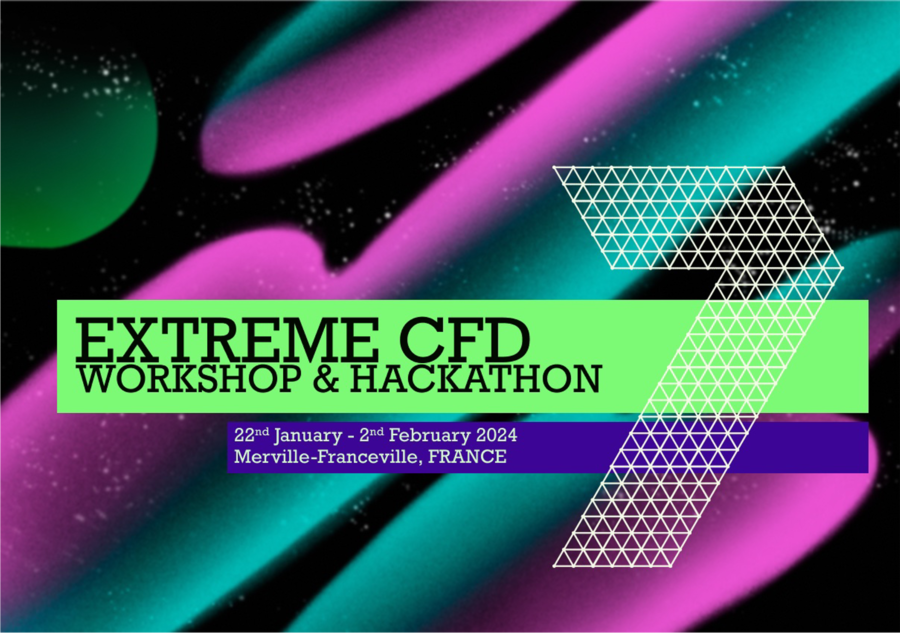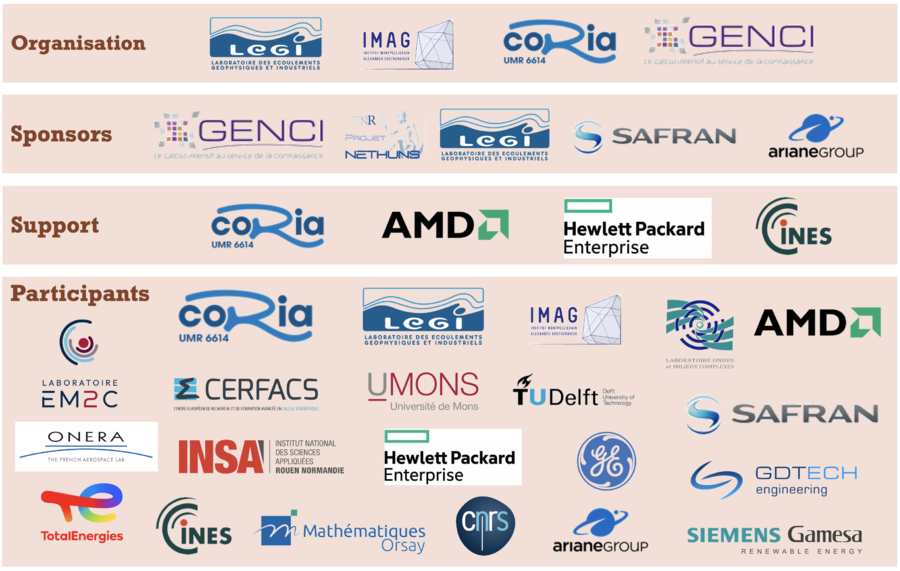Difference between revisions of "Main Page"
From Extreme CFD workshop
| Line 6: | Line 6: | ||
| − | The | + | The 7th edition of the ECFD brought together researchers from academia and industry of the CFD community around massively parallel CFD codes (YALES2, AVBP, ...) to federate their expertise with the objective to improve both some aspects linked to physics integrated into these codes and numerical simulation methodologies to meet technical and scientific challenges already perceptible on modern hybrid supercomputers with accelerated resources. One major impact of developments expected during this event is to support and contribute to energy transition. |
During two weeks, more than 70 researchers, supported by computer scientists, have participated to: | During two weeks, more than 70 researchers, supported by computer scientists, have participated to: | ||
Revision as of 11:31, 7 February 2024
The 7th edition of the ECFD brought together researchers from academia and industry of the CFD community around massively parallel CFD codes (YALES2, AVBP, ...) to federate their expertise with the objective to improve both some aspects linked to physics integrated into these codes and numerical simulation methodologies to meet technical and scientific challenges already perceptible on modern hybrid supercomputers with accelerated resources. One major impact of developments expected during this event is to support and contribute to energy transition.
During two weeks, more than 70 researchers, supported by computer scientists, have participated to:
- Plenary sessions to expose all the tools and vehicles made available to users to support them in the paradigm shift from general purpose processors to accelerated innovative resources.
- A workshop on 6 different topics (Combustion, Dynamic mesh adaptation, Multi-phase Flows, Numerics, Turbulent Flows, User experience).
- A hackathon where the objective will be to support application owners to continue their efforts to scale up their codes towards taking advantage of GPU resources.

